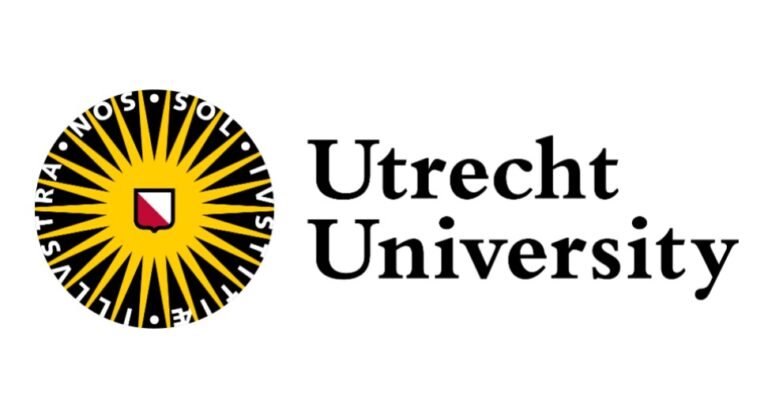Your job
You will investigate the effectiveness of sediment management strategies for adaptation, as well as assess global delta sediment needs and deficits under relative sea-level rise scenarios, highlighting the limits of adaptation. The project will involve developing a generic numerical model, derived from high-resolution process-based models, to evaluate sedimentation management. Additionally, you will explore the potential for sediment management to support other adaptation measures as part of pathways towards adaptation strategies.
To support both your academic and personal development, you will take courses and assist in teaching Earth Sciences courses
at the Bachelor’s and Master’s levels. These activities will comprise twenty percent of your contracted time.
Your qualities
We encourage you to apply if you meet the following qualifications:
- You hold an MSc degree in Earth or Environmental Sciences, Engineering, or a related field, with demonstrable experience in numerical modelling of Earth surface processes.
- You have strong programming skills and experience with large spatial datasets (preferably in Python, or a willingness to learn Python). Experience with High-Performance Computing (or an interest in learning) is desirable.
- You are interested in and capable of participating in interdisciplinary research.
- You possess strong quantitative skills, particularly in (spatial) data analysis, hydrological modelling, and scenario analysis.
- You have excellent written and verbal communication skills in English.
- You enjoy working in an international environment and as part of a multidisciplinary team.
Our offer
We offer:
- a position for one year, with an extension to a total of four years upon a successful assessment in the first year, and with the specific intent that it results in a doctorate within this period;
- a working week of 36-40 hours and a gross monthly salary between €2,872 and €3,670 in the case of full-time employment (salary scale P under the Collective Labour Agreement for Dutch Universities (CAO NU));
- 8% holiday pay and 8.3% year-end bonus;
- a pension scheme, partially paid parental leave and flexible terms of employment based on the CAO NU.
In addition to the terms of employment
laid down in the CAO NU, Utrecht University has a number of schemes and facilities of its own for employees. This includes schemes facilitating professional development
, leave schemes and schemes for sports and cultural activities
, as well as discounts on software and other IT products. We also offer access to additional employee benefits through our Terms of Employment Options Model. In this way, we encourage our employees to continue to invest in their growth. For more information, please visit Working at Utrecht University
.
About us
A better future for everyone. This ambition motivates our scientists in executing their leading research and inspiring teaching. At Utrecht University
, the various disciplines collaborate intensively towards major strategic themes
. Our focus is on Dynamics of Youth, Institutions for Open Societies, Life Sciences and Pathways to Sustainability. Sharing science, shaping tomorrow
.
Utrecht University’s Faculty of Geosciences
studies the Earth: from the Earth’s core to its surface, including man’s spatial and material utilisation of the Earth – always with a focus on sustainability and innovation. With 3,400 students (BSc and MSc) and 720 staff, the faculty is a strong and challenging organisation. The Faculty of Geosciences is organised in four Departments: Earth Sciences, Human Geography & Spatial Planning, Physical Geography, and Sustainable Development.
The team of the department of Physical Geography
excels in research and education on BSc, MSc and PhD level. We research processes, patterns and dynamics of Earth’s systems from the mountains to the sea, and the interaction in between. This knowledge is essential for the sustainable management of our planet and to guarantee the availability of resources for the next generations. We are a lively department that hosts an active early career community (PhD candidates, researchers and lecturers). We organise a warm welcome for every new member.
More information
For more information, please contact Dr Frances Dunn
(Assistant Professor Delta Adaptation) at f.e.dunn@uu.nl or Professor Marjolijn Haasnoot
(Professor Climate Adaptation in Deltas and Coasts) at m.haasnoot@uu.nl.
Candidates for this vacancy will be recruited by Utrecht University.
Apply now
As Utrecht University, we want to be a home
for everyone. We value staff with diverse backgrounds, perspectives and identities, including cultural, religious or ethnic background, gender, sexual orientation, disability or age. We strive to create a safe and inclusive environment in which everyone can flourish and contribute.
To apply, please send your curriculum vitae, including a letter of motivation, via the ‘apply now’ button.
If you have an international (not-Dutch) Master’s diploma you will be requested to send your Bachelor’s and Master’s diplomas and grade lists.
The interviews are on 9 and 10 December. The first round can be online via MS Teams. The preferred starting date is 1 February 2025.
The application deadline is 30 November 2024.




